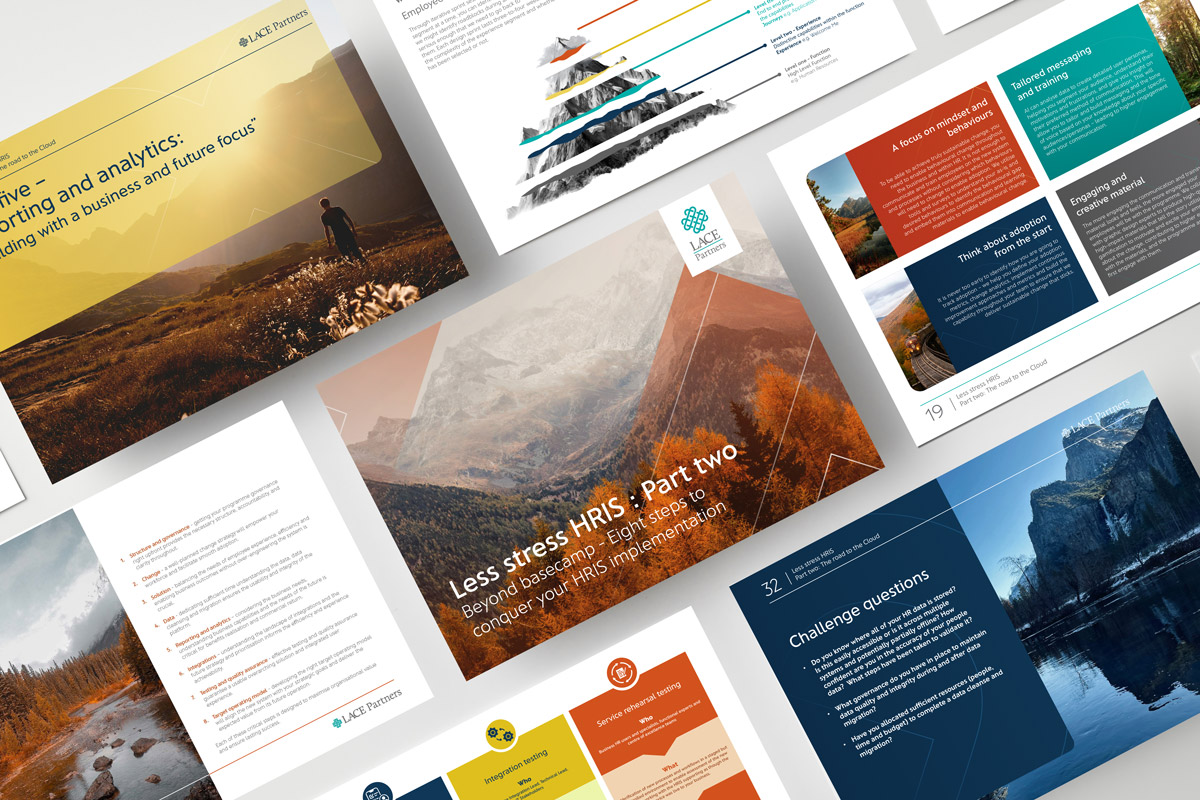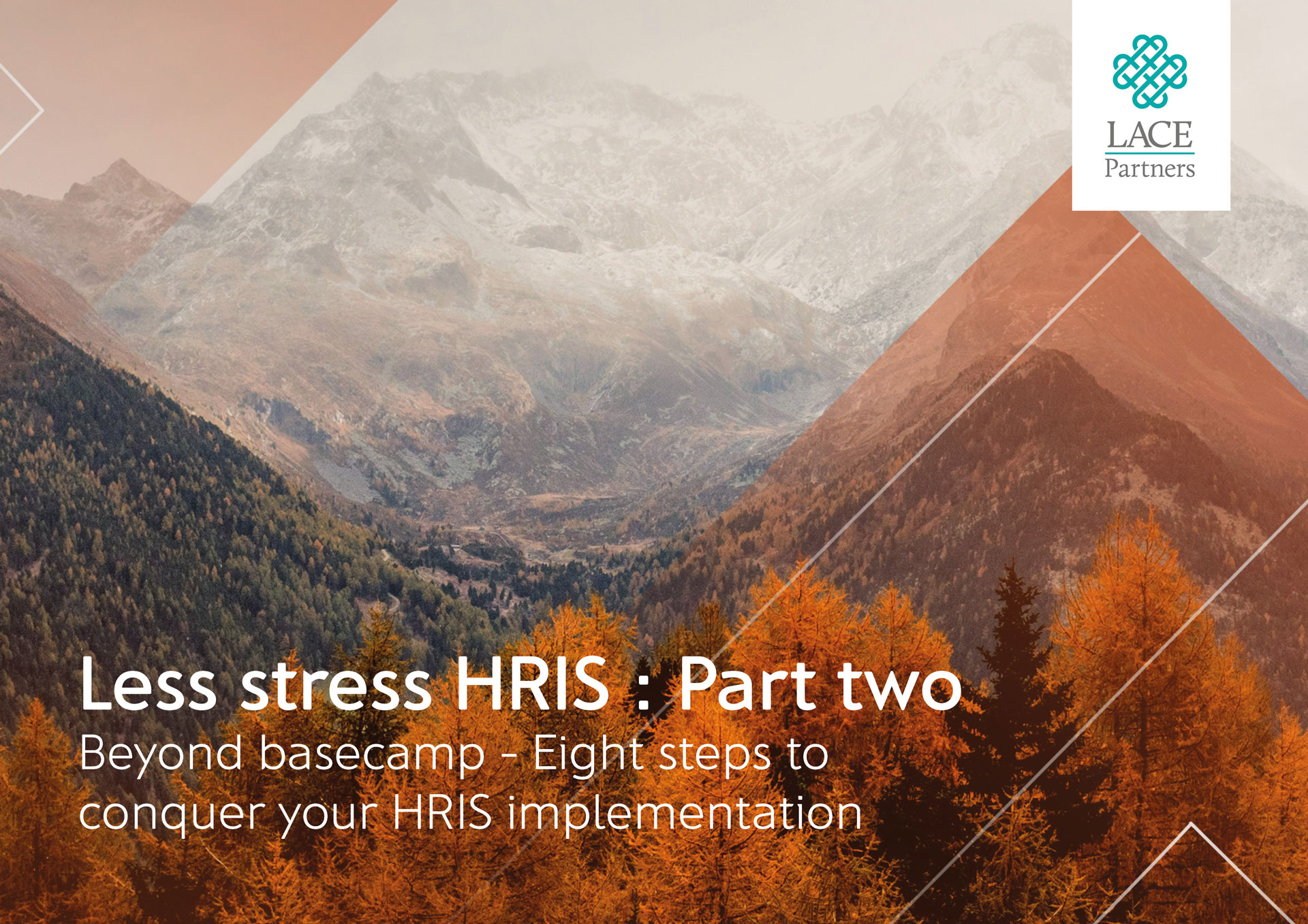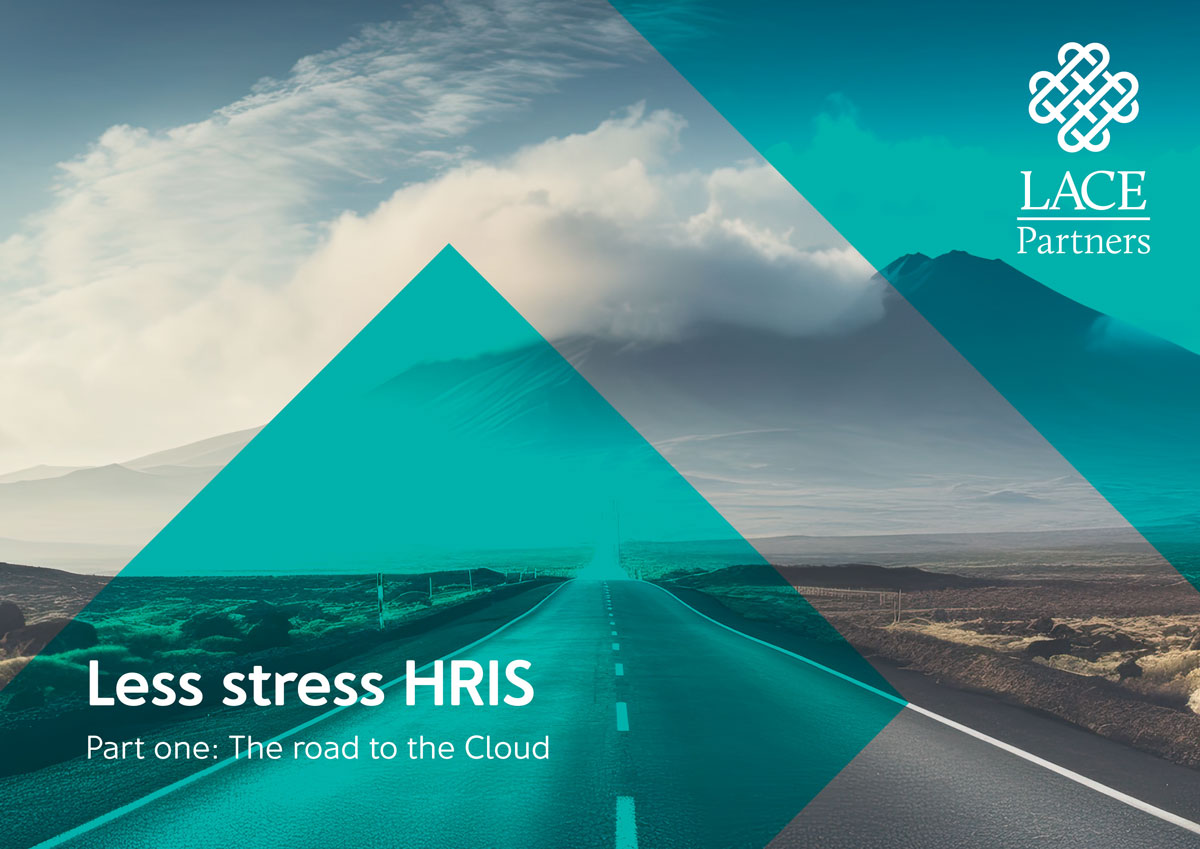Get it right: Implementing your HRIS
In part one of our Less Stress HRIS series, we outlined the foundational elements needed to embark upon an HRIS (Human Resources Information System) implementation. Once you have built a robust value case, secured stakeholder buy-in and funding approval, selected software vendor and SI partners, mobilised the hybrid programme team and agreed your change approach, you are ready to tackle the next phase – implementation!
Why go to the Cloud?
There are many benefits for a business to move to the Cloud and that’s what we outlined in our first whitepaper (which you can access here). As a reminder we’ve listed below a quick visual of some of the benefits:

What’s in this whitepaper?
Much like any climb, getting to basecamp sets up your fundamentals, but moving to the implementation phase is also part of the journey that requires careful planning and execution. This paper explores eight essential areas for setting up your HRIS for long-term success – we are aiming to get you beyond basecamp and up the mountain so you can celebrate your success!
Step 1: Structure and governance – Getting your programme governance right upfront provides the necessary structure, accountability, and clarity throughout.
Step 2: Change management – A well-planned change strategy will empower your workforce and facilitate smooth adoption.
Step 3: Solution – Balancing the needs of employee experience, efficiency, and enabling business outcomes without over-engineering the system is crucial.
Step 4: Data – Dedicating sufficient time to understanding the data, data cleansing, and migration ensures the usability and integrity of the platform
Step 5: Reporting and analytics – Considering the business needs, understanding business capabilities, and the needs of the future is critical for benefits realisation and commercial return.
Step 6: Integrations landscape – Understanding the landscape of integrations and the future strategy and prioritisation informs the efficiency and experience achievability.
Step 7: Testing and quality assurance – Effective testing and quality assurance guarantee a usable overarching solution and integrated user experience.
Step 8: Target operating model, service delivery model and cloud support model – Developing the right target operating model will align the new system with your strategic goals and deliver the expected value from its future operation.

Download a copy of the report through the form below:
Authors and contributors
Sian Beacham
Client Executive Director
Sian is an Executive Director at LACE Partners, specialising in HR transformation and global programme delivery, with over 25 years of experience at Accenture, IBM, and major global organisations.
More on Sian
Marcus Uzubalis
Director
Marcus is a Director at LACE Partners, specialising in HR transformation, organisation design, and strategic HR leadership. With over 20 years of experience across multiple industries, he brings deep expertise in global HR operating models and change management.
More on Marcus
Annette Frem
Manager
Annette is a Change Management and Communications Specialist at LACE Partners, helping organisations design effective change programmes and engagement strategies to drive sustainable transformation.
More on Annette
Martin Colyer
Director Digital and AI
Martin joined LACE Partners in September 2024 as a thought leader in HR technology, bringing 20 years of experience in consulting, advisory, and programme leadership.
More on Martin







